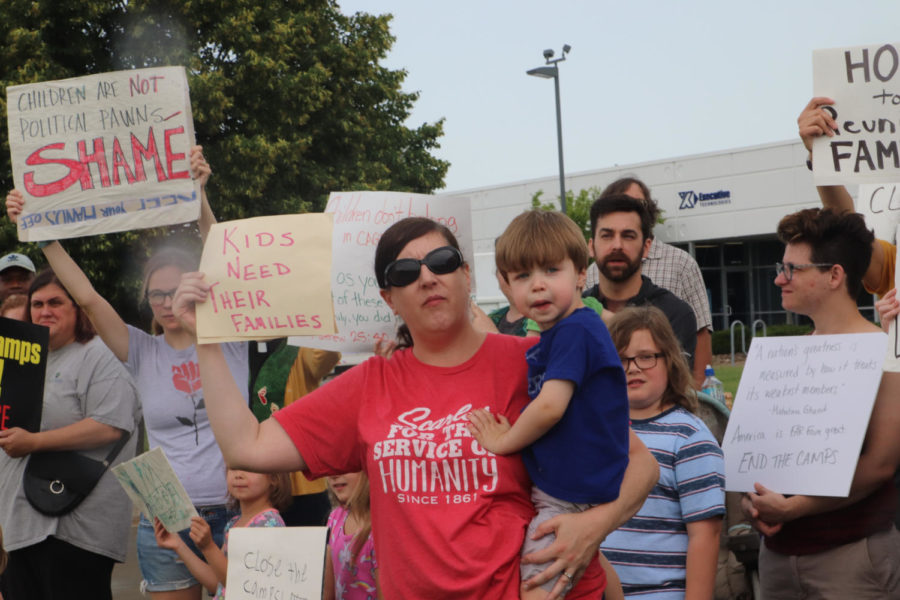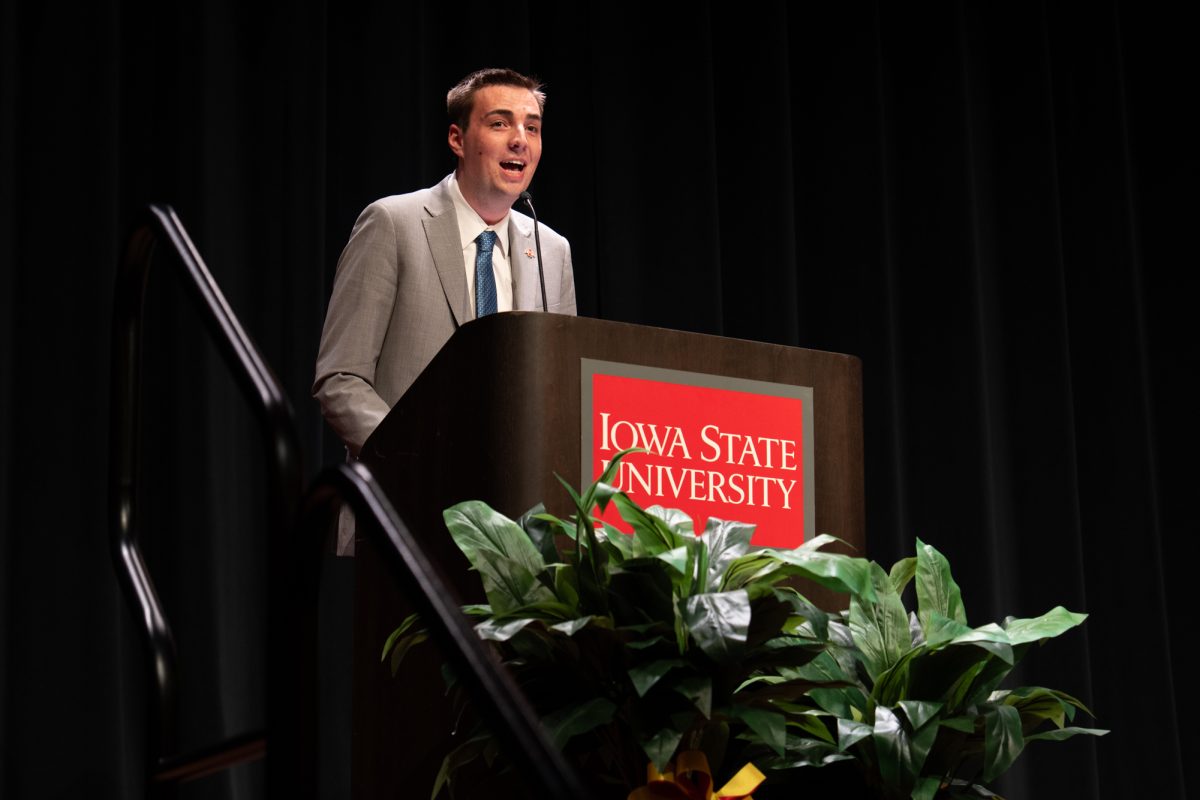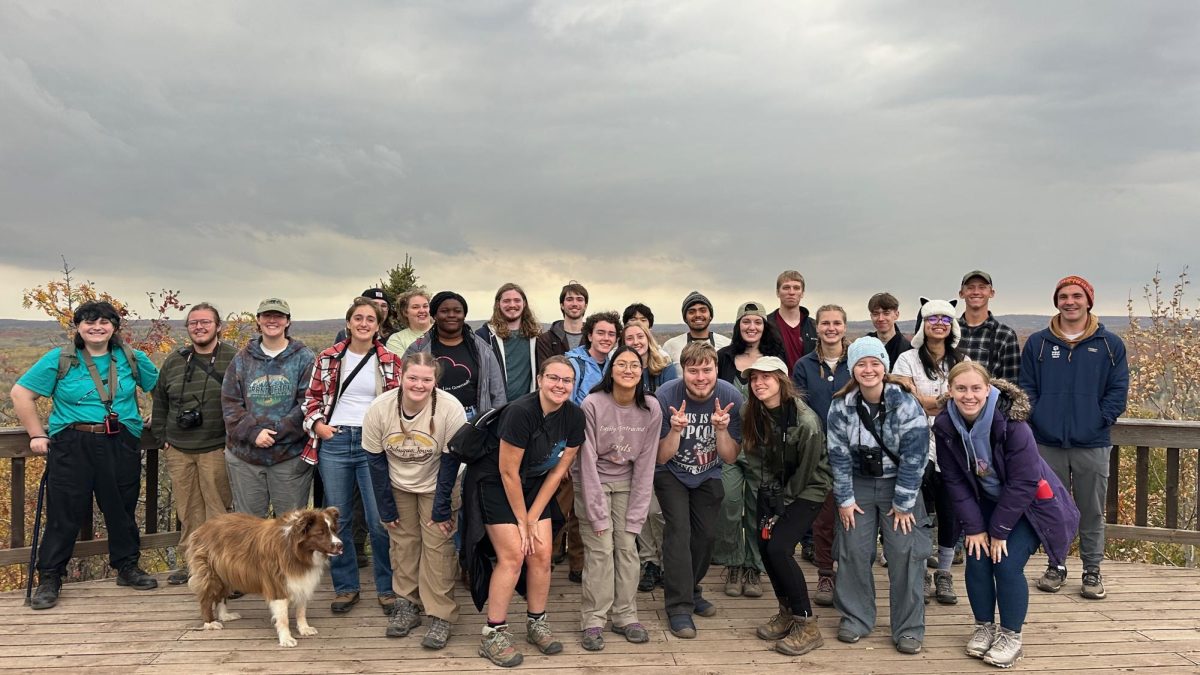Amid pandemic, U.S. continues to deport undocumented children
Megan Dake attends the #CloseTheCamps protest outside Rep. Steve King’s office on July 2, 2019, with her young son. Protesters demonstrated outside King’s office for the closing of U.S. immigrant detention centers.
May 27, 2020
As the pandemic rages on, the Trump administration continues to deport hundreds of undocumented children alone.
Typically, under anti-trafficking laws, children who arrive in the U.S without a guardian are granted the right to claim asylum and placed in the custody of the Department of Human Services until they can be placed with a guardian, according to the New York Times.
This has changed now that the country is facing a pandemic that has crippled the economy and caused the death of over 350,000 people worldwide. The New York Times recently reported more than 900 children have been sent back to their homes before they can claim asylum in the U.S. or coordinate with guardians in their home country.
The justifications for deportation flights is a law from 1944 that allows the president “to block foreigners from entering into the U.S. to prevent the serious threat of a dangerous disease,” according to the New York Times.
Scott Feinstein, an assistant professor in political science at Iowa State, said this law has been rarely used until now.
“It seems that invoking one law seems to be fairly out of line with the other law,” Feinstein said. “Some of these cases it has been reported that they are expelling migrant children who are already in the United States before the pandemic began, and that doesn’t quite coincide with, at least what I would say, the intent with either law.”
Feinstein said during a health crisis, there is generally a slowdown in migration, but for people like refugees, the crisis potentially could make them more vulnerable. Feinstein said looking at history the deportation of children has not been a common tactic to resolve a public health issue.
“I think it is a way to probably strike fear into people that have an effect on their willingness and desire to migrate just because these are such vulnerable populations, children, not a lot of right to advocate for themselves,” Feinstein said. “I think once you turn on them, potentially people are more frightened, that doesn’t mean that they are going to be better off. They might be still stuck in a more traumatic situation with fewer options and opportunities. So it might detour migration but I don’t think it detours the spread of the virus.”
Nicole Whitlock, senior in elementary education at Iowa State, ex officio for Ames City Council and vice president of Iowa State College Democrats, said she thinks the excess deportation of children during the pandemic is coming from a place of political bias and leaders not being as empathic as they should, opposed to benefiting public health.
“These are children whose parents want the best for them,” Whitlock said. “These are kids, they are not going to hurt anybody. Right now, a lot of them are being detained anyways so I don’t think the pandemic is a justification for it at all. I think the pandemic is being seen as an excuse or an easy way out for them to be doing this.”
Whitlock said performing these deportation flights is making an already vulnerable population more vulnerable.
“They are in our country for a reason,” Whitlock said. “They don’t have the same opportunities in their previous place of residences that they do here and deporting them, a lot of people don’t have anywhere to go, when they are here they are in a safer environment and they have better security, a place to live, better health care security. Though, we are taking as great of care as we should be.”
Feinstein said the demographic of children are vulnerable, some fleeing violence and death, and countries, including the U.S., will use this to push political agenda.
“These people are not only in their basic survival situation, but their lives are also under threat by others in the environment, but they lack access and opportunity to voice their experience and claim their human legal rights, leaving them exposed to potentially great trauma,” Feinstein said. “When you have a crisis like the pandemic I think you do have a lot of people able to justify very severe actions. I think you are seeing that in a number of countries, either placing the blame on the migrants coming in and saying that is where the source of the cause of the pandemic is. And using this as justification to take extraordinary measures that are not related to anything about the virus, but expand one’s personal agenda.”






